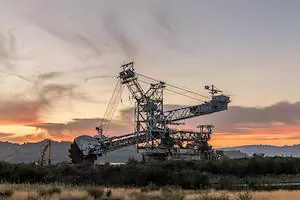New Environmental Regulation regarding Mining Activity in the Province of Neuquén

1. Introduction
Title XIII, Section II of the Argentine Mining Code (introduced by Law No 24,585) provides the standards or minimum levels of environmental protection applicable in Argentina, mainly through two mandatory mechanisms: the Environmental Impact Report (“EIR”) and the Declaration of Environmental Impact (“DEI”).
In the Province of Neuquén, the Provincial Executive Branch regulated the environmental dispositions contained in the Argentine Mining Code, according to the guidelines of the COFEMIN Act and the Provincial Code of Environmental Procedure, through Decree No 3,699/1997. However, on December 9, 2009 the Provincial Legislature enacted Law No 2,682, published in the Official Gazette on January 8, 2010, which establishes new environmental regulation for mining activity in the Province and regulates the environmental rules contained in the Argentine Mining Code as well.
2. Innovations in the Argentine Mining Code
Many of the provisions contained in the Law are present in the Argentine Mining Code. However, Law No 2,682 sets forth new environmental provisions aimed directly to control of mining activity.
2.1 Environmental Protection Area
Sections 14 and 15 of Law No 2,682 stipulate that if mining industrial processes use mercury, cyanide solutions or sulfur acid solutions, an Environmental Protection Area must be established:
(a) in a ten kilometer range from the center of any provincial city constituted as a municipality; and
(b) in a land strip one thousand meters wide from the area with flood risk from every river, stream or water area of the provincial territory.
The geographical limits of the Environmental Protection Area must be included in the DEI (Section 16, Law No 2,682). It is forbidden to set up mineral processing facilities which use the substances mentioned in the paragraph above within the Environmental Protection Area (Section 17, Law No 2,682).
Law No 2,682 does not specify whether the prohibition applies to public smelting and benefit establishments contained in Section 170 of the Mining Code, or to the establishments annexed to mines, aimed to benefit from minerals extracted by said mines. If the prohibition refers to the establishments contained in Section 170 of the Argentine Mining Code, there would seem to be no inconveniences with setting said limitation, since these establishments are subject to “the dispositions applicable to normal industrial companies” (Section 170 of the Argentine Mining Code). However, if the disposition refers to establishments annexed to mines which exclusively benefit minerals extracted by them (i.e., not public establishments), the scenario changes completely, since the annexes are subject to the nature of public utility of mining activity (Section 3 of the Argentine Mining Code). As such, the provincial regulation is not entitled to set forth limitations that are not contained in national regulation. Moreover, such limitation may cause tremendous consequences for certain mining operations, since the benefit establishments annexed to mines must be necessarily located near the mining exploitation due to technical and economic reasons.
2.2 Permanent Inspection
Section 18 of Law No 2,682 provides that if mining exploitations perform lixiviation or concentration processes with mercury, sulfuric acid solutions or cyanide solutions, the enforcement agency must impose permanent inspection for as long as the exploitation takes place. Furthermore, the regulation stipulates that the cost of said inspection must be borne by the concessionaire.
The inspection constitutes an additional control to mining processes which use substances contained in Section 18 of Law No 2,682, excluding the activities which do not make use of them.
Section 19 of Law No 2,682 provides that municipalities near the industry will appoint neighbors as representatives to join the inspection. There are no details on the extent of their faculties.
Finally, Section 23 of Law No 2,682 stipulates that the inspection will control all the stages of the exploitation and may suspend totally or partially certain works for technical reasons, based on the offence observed.
This insight is a brief comment on legal news in Argentina; it does not purport to be an exhaustive analysis or to provide legal advice.